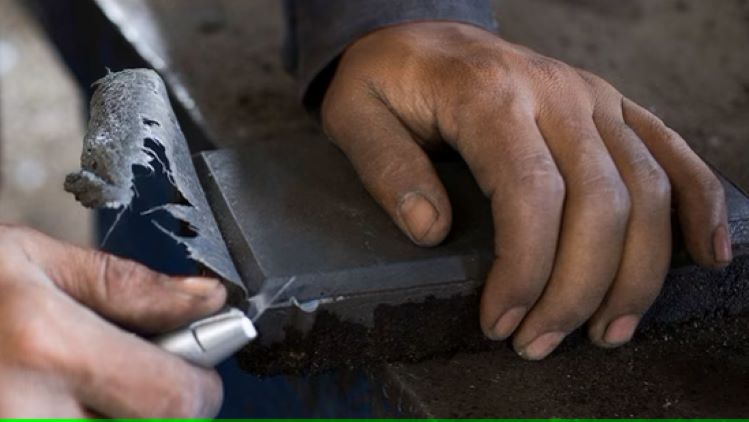(3 Minutes Read)
According to the global environmental “Black to Blue” initiative, Egypt is responsible for 43% of plastic waste dumped annually in the Mediterranean Sea. The building and construction sector is by far the world’s largest emitter of greenhouse gases
Egypt is adopting several measures to address climate change. One among them is converting plastic wastes into tiles, that can be used in the construction industry. In a factory in Cairo, workers are using tiny shards of discarded plastic to make tiles.
TileGreen is one of many Egyptian start-ups that have emerged in Egypt in recent years to offer solutions ensuring sustainability and green transformation in various sectors.
TileGreen, which started three years ago, aims to make the country’s construction industry more environmentally friendly. The young entrepreneurs at the start-up are combatting two problems. The country’s huge levels of plastic waste and high levels of emissions from cement used in the building sector.
These tiny shards of plastic are mixed with sand to create a substance that is molded into the final product. TileGreen focuses on unwanted plastic waste that usually ends up in dumpsters, or on the street, as single-use plastic bags and other food containers that cannot be safely recycled. According to some estimates, Egypt produces around 4.5 million tonnes of plastic waste a year and each tile uses 125 plastic bags for conversion to a single tile.
According to the global environmental “Black to Blue” initiative, Egypt is responsible for 43% of plastic waste dumped annually in the Mediterranean Sea. The building and construction sector is by far the world’s largest emitter of greenhouse gases.
Read Also:
https://trendsnafrica.com/egypt-sets-to-increase-electricity-charges/
It is crucial to reduce the carbon footprint from the production and use of materials such as cement, steel, and aluminum. Construction and real estate are widely seen as the driving force of Egypt’s economic growth. Both sectors accounted for nearly 19% of the country’s GDP in 2022, according to the Central Bank of Egypt’s latest figures. However, government figures show that the construction and manufacturing industries are responsible for 23% of CO2 emissions.
The European Bank for Reconstruction and Development, in a 2016 report found that Egypt’s cement sector alone accounts for nearly 14% of emissions. Two years ago, TileGreen supplied SODIC, a leading real estate developer, with interlocking tiles for the pathway outside its administrative complex.





